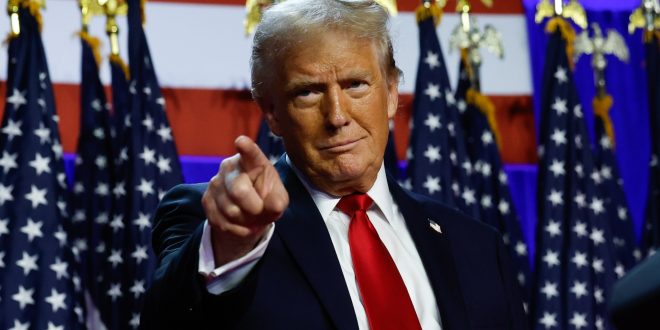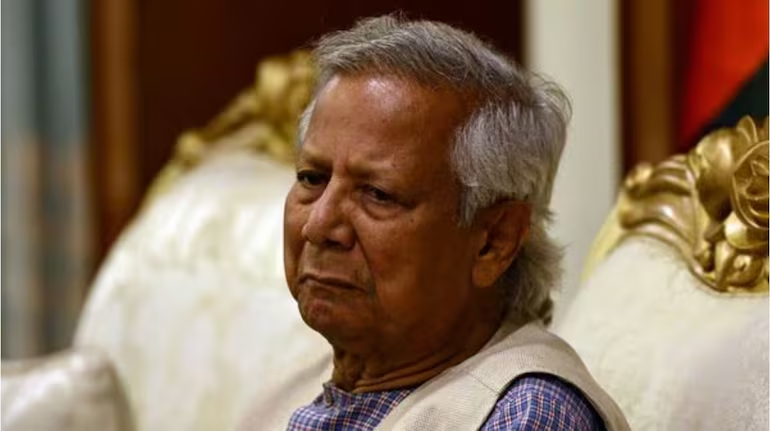New Delhi: 2024 was called the ‘year of elections’. General elections were held in many countries of the world. ( changed) Eight of the 10 most populous countries – Bangladesh, Brazil, India, Indonesia, Mexico, Pakistan, Russia and the United States – held elections this year. In addition, the European Union held elections for the European Parliament in June.
In terms of elections, 2024 proved to be a difficult year for existing and traditional political parties. Troubled by rising prices, divided on cultural issues and angry with the political status quo, voters in many countries voted in favor of a change of government, while somewhere the ruling party missed the majority.
A look at some of the countries where power changed through voting in 2024: –
America: In one of the most high-profile elections of the year, Democrats lost the presidency in the United States. Republican and former President Donald Trump defeated Vice President Kamala Harris. Republicans also won a majority in both houses of Congress. This was the third consecutive US presidential election in which the incumbent party lost.
United Kingdom: Political power shifted to the leftists in the general election held on July 4, 2024. The Labor Party won a massive parliamentary majority, ending the Conservative Party’s 14-year rule.
Botswana: The general election held on October 30, 2024 in this southern African country attracted the attention of the whole world. This was an election that not only registered its name in the political history of Botswana but also in the electoral history of the world. Here the Botswana Democratic Party lost power for the first time in nearly 60 years. The BDP, which has dominated the country’s politics since independence in 1966, was decisively defeated by the center-left opposition Umbrella for Democratic Change (UDC). The BDP came in fourth place due to the large inclination of voters towards the opposition parties.
South Korea: In April, South Korean voters gave the opposition Democratic Party a majority of seats in the National Assembly, which was seen as a checkmate of President Yoon Suk-yol of the People’s Power Party. In early December, President Yoon imposed martial law and accused Democratic Party leaders of ‘anti-state’ activities. The National Assembly voted unanimously to lift martial law, following which Yoon reversed his decision. The National Assembly also passed an impeachment motion against Yoon. After the impeachment motion was passed, Yoon was suspended while Prime Minister Han Duk-soo took over as acting president.
Ghana: Ghana held general elections on 7 December 2024 to elect a new president and all 275 members of parliament. Incumbent President Nana Akufo-Addo had completed his constitutional term limit, so he was ineligible for re-election. The National Democratic Congress (NDC) candidate, former President John Mahama, won a majority in the first round, enough to win without a re-vote. Mahamudu Bawumia, the candidate of the ruling New Patriotic Party (NPP), accepted defeat the morning after election night. In the parliamentary elections, the NDC won a landslide victory by winning 185 of the 276 seats, while the NPP secured 87 seats, with independent candidates also winning four seats, giving the NDC a majority in parliament.
Now let’s talk about some of the countries where the ruling party missed out on a majority.
South Africa: South Africa held general elections on 29 May 2024 to elect a new National Assembly as well as provincial legislatures in each of the nine provinces. This was the 7th general election held under the conditions of universal adult suffrage since the end of the apartheid era in 1994. Support for the ruling African National Congress (ANC) declined significantly in this election; the ANC remained the largest party but lost the parliamentary majority. This was the first time the ANC lost its majority since the end of the apartheid era.
Japan: Japan’s general election was also a topic of discussion this year. The Liberal Democratic Party, which had ruled the country for most of the time since World War II, and its coalition partner, Komeito, lost their majority in parliament.
France: President Emmanuel Macron’s decision to hold snap elections in the summer backfired. Macron’s centrist Ensemble coalition lost to both the leftist New Popular Front and the rightist National Rally.
India: The general election in India, the ‘largest democracy’, perhaps grabbed the most headlines this year. The whole world was watching whether the BJP, led by Narendra Modi, could create history by winning elections for the third time. The election results were contrary to the ruling party’s expectations. The BJP could not secure a majority on its own and had to form a government with the help of other parties. However, many analysts saw Narendra Modi’s victory in the third consecutive election as a major achievement.
 Indian Thought Latest News & Views
Indian Thought Latest News & Views



